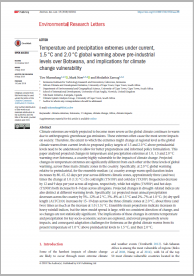
This paper analysed projected changes in temperature and precipitation extremes at 1.0, 1.5 and 2.0 °C warming over Botswana, a country highly vulnerable to the impacts of climate change.
The following is a list of all conten labeled as "Water"

This paper analysed projected changes in temperature and precipitation extremes at 1.0, 1.5 and 2.0 °C warming over Botswana, a country highly vulnerable to the impacts of climate change.
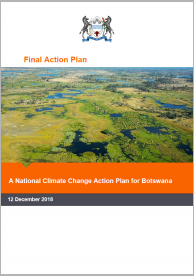
This action plan serves as a companion document to the Botswana National Climate Change Strategy of 2018. It provides a clear pathway for the implementation and monitoring of the strategy by providing targets and indicators for each strategy.
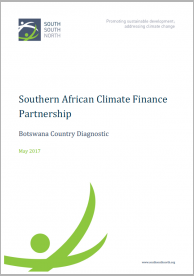
The Southern Africa Climate Finance Partnership (SACFP) seeks to develop a regional partnership between six countries (Botswana, Lesotho, Namibia, South Africa, Zambia and Zimbabwe) to support country-owned and managed climate finance portfolios that can be financed through the Green Climate Fund (GCF) and other climate finance avenues, and mobilise private investment where possible.
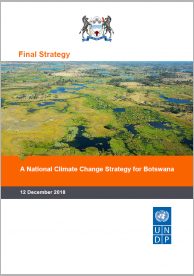
This strategy is designed to provide the impetus for Botswana taking long strides on adaptation and mitigation, whilst meeting its socio-economic development goals, realizing Vision 2036, and achieving the UN Sustainable Development Goals (SDGs).
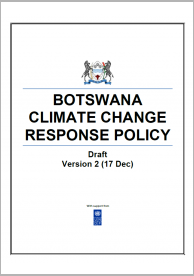
The goal of this policy is to mainstream sustainability and climate change into development planning and in so doing, enhance Botswana’s resilience and capacity to respond to existing and anticipated climate change impacts.
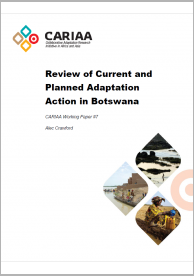
Climate change presents a very real challenge to Botswana’s continued development and relative prosperity.
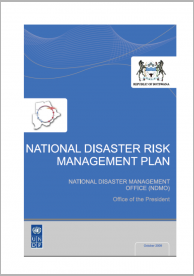
The National Disaster Risk Management Plan (NDRMP) will be the basis to establish policies, strategies and procedures that will guide all levels of society in disaster preparedness, response and risk reduction.
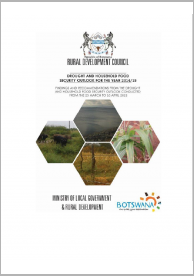
The Drought and Household Food Security assessment for 2014/15 was undertaken from 23 March to 10 April 2015. This exercise is conducted annually to complement early-warning reports compiled on a routine basis by the various Government Departments and Ministries.
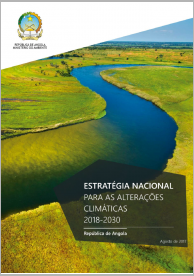
The National Strategy for Climate Change 2018-2030 (ENAC 2018-2030) arises from the need to articulate objectives, instruments and institutions in pursuing the most recent challenges that the country is facing, both in terms of its economy and the improvement of conditions population, as well as at the level of the most recent global climatic events, resulting from the Paris Agreement and the S
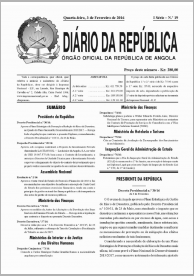
This Presidential Decree approves the Strategic Plan for the Prevention and Reduction of Disaster Risk for the period 2013-2017.